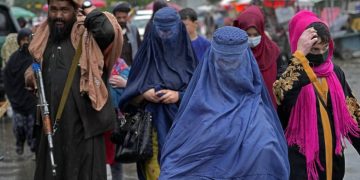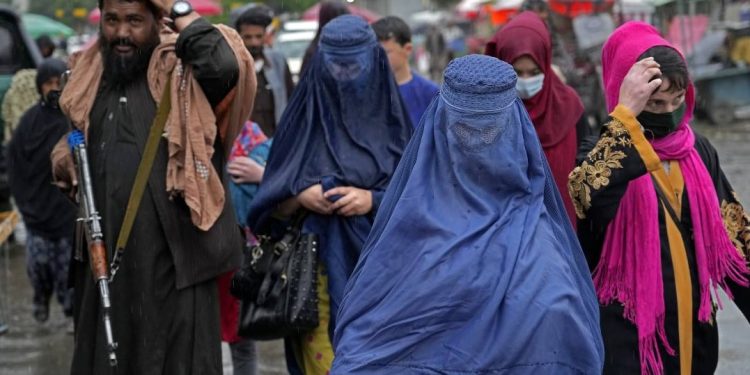By John Ikani
The Taliban has issued yet another restrictive measure targeting women in Afghanistan, this time prohibiting women from “hearing other women’s voices” during prayer, sources reported this week.
Khalid Hanafi, the acting minister of the Ministry for the Promotion of Virtue and Prevention of Vice, relayed the announcement in a voice message shared on the ministry’s social media platforms, though it has since been removed, according to the Associated Press.
“Even when an adult female prays and another female passes by, she must not pray loudly enough for them to hear,” Hanafi reportedly said, with The Telegraph describing the statement as lengthy and inconsistent.
Details of the ban remain sparse, but Afghan women are already barred from performing the call to prayer or from public speaking. Additionally, an earlier decree mandated women to fully cover themselves, including their faces, in public settings.
“It is prohibited for a grown woman to recite Quranic verses or perform recitations in front of another grown woman. Even chants of takbir (Allahu Akbar) are not permitted,” Hanafi stated in the message, reportedly posted on Monday. “So, there is certainly no permission for singing.”
With the restrictions on public speaking introduced in August, women are also forbidden from speaking indoors in a manner that would allow their voices to be heard outside.
This new measure appears to target even personal religious expressions among women, reportedly banning phrases such as “subhanallah” (meaning “Glory be to Allah”) if spoken in front of other women at home.
The Taliban claims that these stringent limitations are intended to “prevent temptation and the potential to tempt others.” Women are also required to have a male guardian when outside, and violations of these rules often lead to arrest and imprisonment.
Richard Bennett, the U.N. Special Rapporteur on human rights in Afghanistan, released a report on Monday documenting acts of sexual violence, including instances of rape, committed against women detainees by the Taliban.
The report suggests that the Taliban’s extensive system of gender-based restrictions may constitute crimes against humanity, including gender persecution, and Bennett will formally present his findings to the United Nations General Assembly on November 1.




































